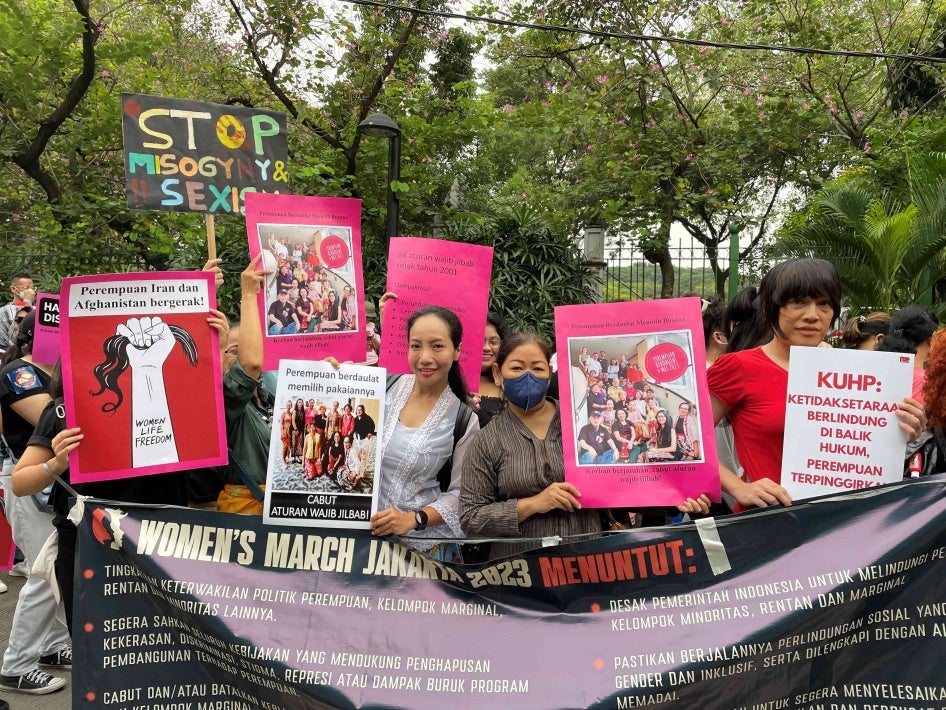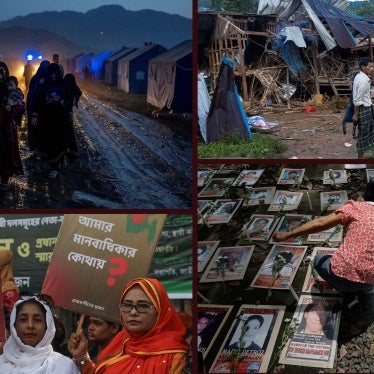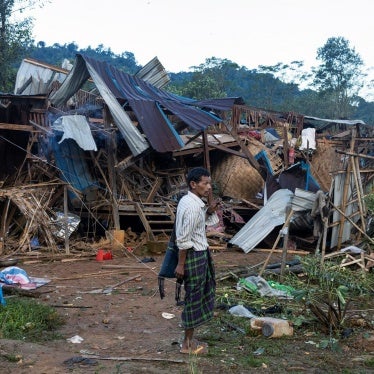(Bangkok) – Indonesian President Joko “Jokowi” Widodo’s final year in office produced no major initiatives to address the human rights problems in the country, Human Rights Watch said today in its World Report 2024. The next president, to be elected on February 14, 2024, will face an array of rights issues including a highly problematic new criminal code, continued harassment and discrimination against religious minorities and other marginalized groups, and deep-seated abuses against women.
“President Jokowi made little use of his last year in office to seek to reverse the longstanding human rights problems faced by Indonesians because of their religion, gender, or ethnicity,” said Elaine Pearson, Asia director at Human Rights Watch. “The next president should waste no time tackling the rights issues that President Jokowi created or ignored.”
In the 740-page World Report 2024, its 34th edition, Human Rights Watch reviews human rights practices in more than 100 countries. In her introductory essay, Executive Director Tirana Hassan says that 2023 was a consequential year not only for human rights suppression and wartime atrocities but also for selective government outrage and transactional diplomacy that carried profound costs for the rights of those not in on the deal. But she says there were also signs of hope, showing the possibility of a different path, and calls on governments to consistently uphold their human rights obligations.
In December 2022, the Indonesian Parliament adopted a new criminal code, which will go into effect in January 2026. Articles in the new code violate the rights of women, religious minorities, and lesbian, gay, bisexual, and transgender (LGBT) people, and undermine the rights to freedom of speech and association.
In West Papua, the authorities arbitrarily arrest and prosecute Indigenous Papuans for expressing views in support of peaceful self-determination. The authorities also restrict travel and access to West Papua by foreign media, diplomats, and human rights monitors.
Local and provincial governments pressure girls and women to wear the hijab. The National Commission on Violence Against Women said in August that localities have put into effect 73 mandatory hijab regulations. Sanctions range from verbal warnings to expulsion from school or work, and criminal penalties of up to three months in jail. These regulations have triggered nationwide bullying against girls and women who do not wear the hijab, including non-Muslims.
Many government officials’ biased statements provided justifications for officials and vigilantes’ harassment and violence against LGBT people. Security officers arrested LGBT people, raided their houses, and looked the other way as landlords and neighbors evicted them.
Indonesia’s foreign policy missed important opportunities to improve human rights in the region. Indonesia chaired the Association of Southeast Asian Nations (ASEAN) in 2023, but the bloc failed to persuade the military junta in Myanmar to carry out any provisions of the Five Point Consensus agreed to in Jakarta in April 2021 after the February 2021 military coup in Myanmar.









